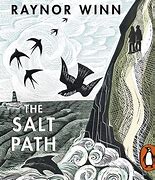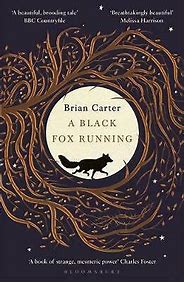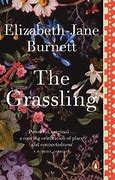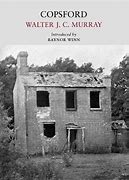Christmas Recommended Reads: For the person who finds respite in nature
Christmas is just around the corner! And what better present to give - and receive - than a beloved book? We've read some incredible stories and poetry this year, some of which we've chosen from The Reader Bookshelf, some have been recommended by guests on our podcast, and some have just happened upon us, as good books sometimes do.
Here, we share our suggestions for books to share with friends and loved ones this festive season.
For the person who finds respite in nature – in the garden, or walking down to the sea or round the park.
The Salt Path by Raynor Winn, recommended by Clare Ellis, Head of Teaching and Learning
‘You wouldn’t think it would be possible…would you? To have the willpower to do this?’
This is what one of my group members said as we were reading The Salt Path together, by Raynor Winn.
In this memoir, Raynor and her husband Moth have just had some devastating news. Moth has been diagnosed with a terminal illness, corticobasal degeneration, CBD. They are also given the news that they have lost a very lengthy court battle over the family farm and are now rendered effectively homeless. While the bailiffs are knocking on the door to gain access to the family home, Ray, hiding under the stairs with Moth, spots a book from her twenties, Five Hundred Mile Walkies, the story of a man who walked the South West Coast Path with his dog. Suddenly she decides maybe they could do the same as a way of going forward somehow.
The enormity of the task sets in well before the walk. ‘Packing a rucksack when you’re fifty just isn’t the same as when you’re twenty.’ The effects of illness are already beginning to seep into Moth, so much so that he needs Raynor to put the backpack on for him and the weight of the object is nearly soul destroying. And yet…they still decide to do this walk, and they will only have £48 each week to survive on; as Raynor reflects back to their setting out ‘we stood together like a pair of stranded turtles’:
‘The earth had cracked; we left ourselves on the other side of a void that we could never cross. Running from the rupture in someone else’s shell. Just driving away. And ahead of us? The walk, the only walk.’
I would give this book to anyone who needs a good strong gust of fresh sea air to enter into their lives. I would give it to someone who was perhaps struggling to find hope and motivation in life and needed a way to have their belief in the power of the human spirit to be restored and a practical way of finding it again for themselves. I am glad that I was able to give it to my 92-year-old group member who discovered that what we might think of as impossible might yet be doable.
A Black Fox Running by Brian Carter, recommended in Issue 73 of The Reader magazine
The foreword to this classic of British nature writing warns ‘[this] is not a children’s book’. The animals talk to each other, as they do in Watership Down but Brian Carter does not otherwise anthropomorphise the foxes. His writing is extraordinary, sometimes soaring, sometimes right down to earth: visceral and unsparing. The novel is as much about the humans as the animals with whom they share the wild Devon countryside in uneasy co-habitation. Essentially it’s the story of the black fox, Wulfgar, and of the sad but vicious trapper who pursues him but it is so much more: unique, intense, poetic, religious, philosophical, thrilling. Impossible to describe. Just read it.
The Grassling by Elizabeth-Jane Burnett, recommended in Issue 73 of The Reader magazine
The author is a poet whose mother is Kenyan and whose father, like his forefathers, comes from a small village in Devon. His final illness encourages Elizabeth-Jane to seek out the book he wrote on the history of his land, in order to write of her own growing sense of rootedness and connectedness in what will be a book about soil, ancestry, mourning and metamorphosis. Experimental in form and poetic prose, this is moving, exhilarating and utterly unlike any other nature writing.
Copsford by Walter J.C. Murray, recommended in Issue 73 of The Reader magazine
First published in 1948, this short, classic memoir records the year the author left the confines of the city in order to get back to the simple life. All he can afford is Copsford, a filthy, derelict cottage in the middle of nowhere, without windows, electricity or running water and infested with rats and fleas. It almost defeats him but armed with brushes, poison and a gallant dog, he overcomes and makes the life he seeks, scratching a living by collecting and selling herbs. This wonderful book is infused with his deep love of the natural world. It is inspirational and an absolute joy.
Share
Related Articles

Storybarn Book of the Month: Saving the Butterfly
This month, as part of Refugee Week (16-22 June), we've been taking a look back at one of our favourites…

June’s Stories and Poems
This month we are celebrating the natural world, and especially the many wonderful creatures that live within it, with June’s…

April’s Monthly Stories and Poems
Our year of Wonder with The Reader Bookshelf 2024-25 is coming to a close – though we won’t be putting…






